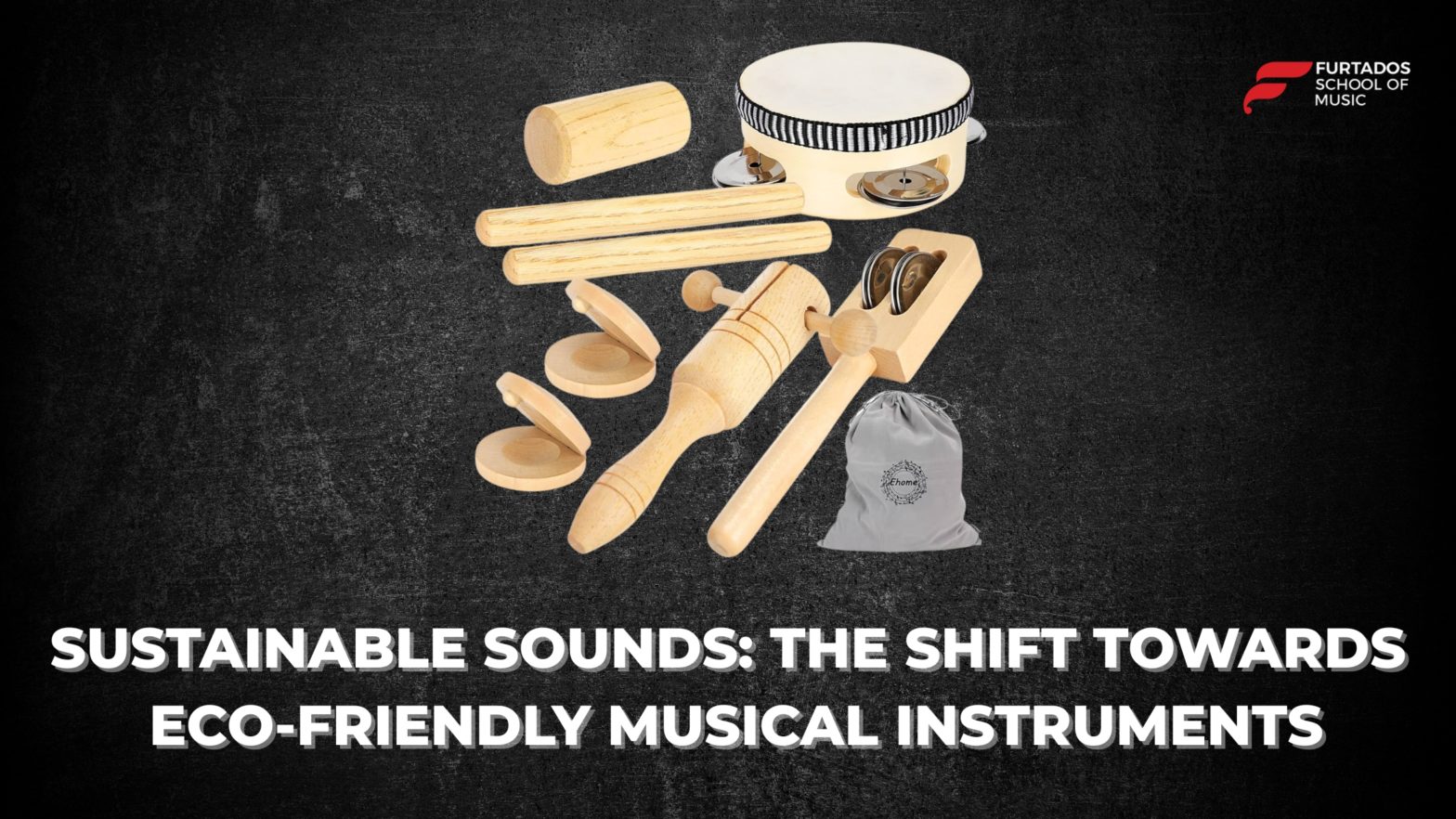As the world embraces conscious living, sustainability is no longer just a trend—it’s a lifestyle. From fashion to food to technology, the focus on eco-friendly alternatives has expanded into the music industry as well. Today, musicians and educators alike are turning their attention to eco-friendly musical instruments, aiming to reduce their environmental footprint while still producing beautiful sound. This green wave is transforming how instruments are made, used, and even taught—ushering in a new era of sustainable music gear and green music production.
At Furtados School of Music (FSM), we believe that music and environmental responsibility go hand in hand. Our programs not only nurture musical skills but also encourage awareness about the impact of our choices—from the materials we use to the way we teach. Let’s explore the evolving world of environmentally friendly instruments and how FSM is helping lead the change.
1. Eco-Friendly Musical Instruments: A Conscious Choice
Traditional instruments are often made using endangered woods, synthetic materials, and non-recyclable metals. In contrast, eco-friendly musical instruments are crafted using responsibly sourced woods, recycled components, and biodegradable alternatives. For example:
- Guitars made from bamboo or reclaimed wood
- Flutes and wind instruments crafted from sustainable metals
- Drumsticks created from fast-growing, renewable tree species like hickory or maple
These options ensure that musicians don’t have to compromise on quality or tone while contributing to the planet’s wellbeing.
2. Sustainable Music Gear: From Stage to Studio
Sustainable music gear goes beyond instruments—it includes every accessory a musician might use. From guitar straps made of recycled materials to vegan leather cases and eco-conscious cables, today’s musicians have a wide range of green alternatives.
At FSM, we encourage students and parents to explore gear that aligns with these values. Whether it’s choosing a biodegradable music folder or using rechargeable batteries in electronic equipment, small decisions lead to big changes when practiced across a community.
3. Green Music Production: Cleaner Soundscapes
With digital technology dominating modern music, green music production is becoming more relevant than ever. This includes:
- Using energy-efficient recording equipment
- Storing files on eco-conscious servers or drives
- Minimizing power usage during studio sessions
FSM advocates for sustainable practices in our online and offline teaching modules. By using cloud-based learning systems and digital sheet music, we reduce paper waste and encourage environmentally responsible learning habits among students.
4. Environmentally Friendly Instruments in Education
One of the most impactful ways to support sustainability is through education. Environmentally friendly instruments are being introduced to younger generations to shape more conscious artists of the future.
FSM partners with brands that prioritize sustainability in their manufacturing and material sourcing. We also host workshops that promote the idea of ‘repair over replace’—encouraging students to maintain their instruments rather than discard them. Through discussions, activities, and eco-driven events, FSM fosters a deeper appreciation for sustainable musicianship.
Conclusion: Harmonizing Music with the Planet
The shift toward sustainability in music is not just a movement—it’s a mission. Choosing eco-friendly musical instruments, investing in sustainable music gear, adopting green music production practices, and integrating environmentally friendly instruments into education is how we can ensure that the next generation of musicians creates a sound that’s both inspiring and responsible.
At FSM, we’re proud to be part of this journey. Through conscious choices, community-driven education, and a commitment to the planet, we are helping shape musicians who don’t just play music—they make a difference.
